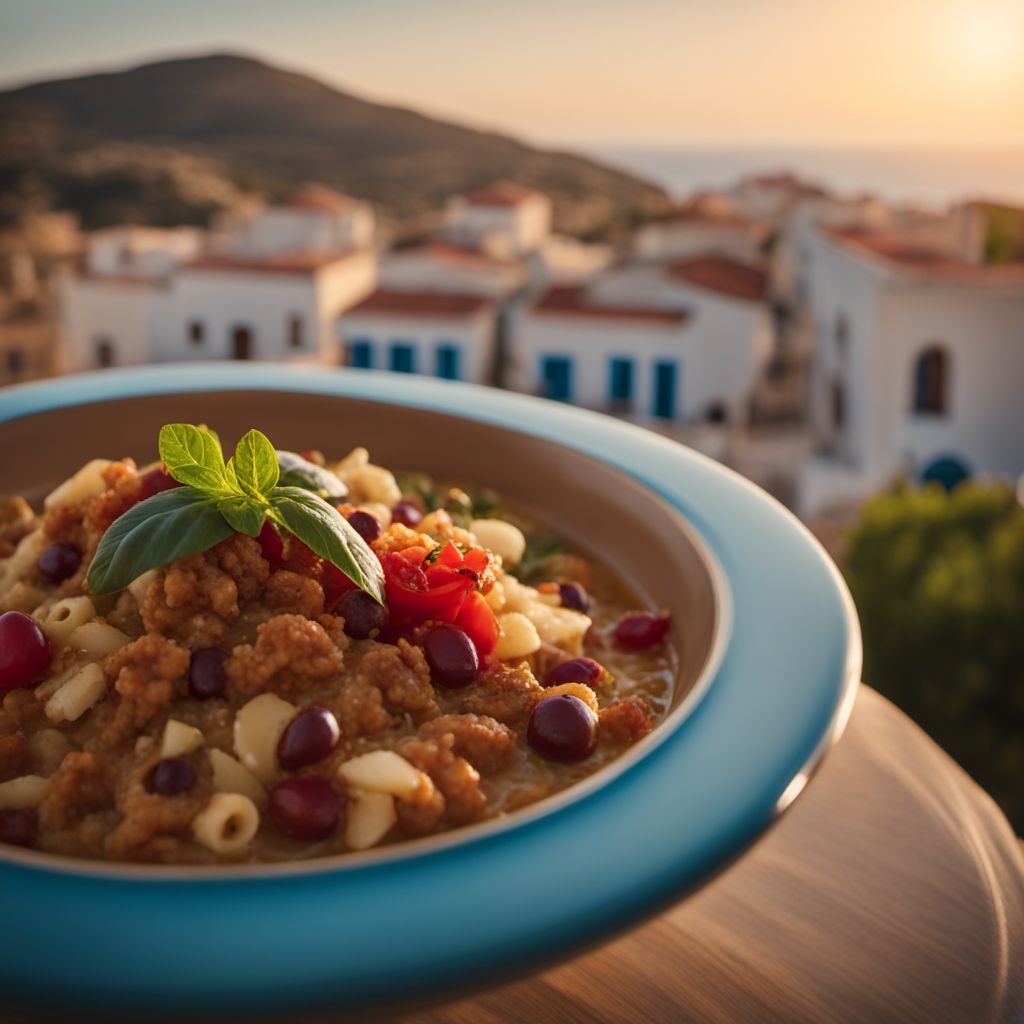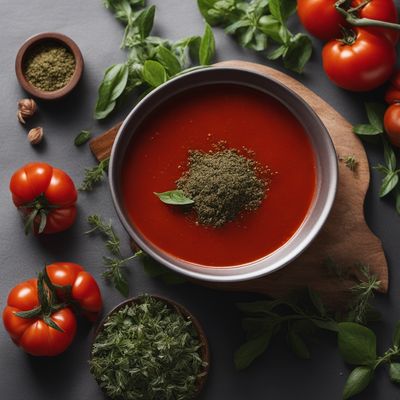
Cuisine
Cretan cuisine
Cretan cuisine is based on the Mediterranean diet, which emphasizes the consumption of fruits, vegetables, whole grains, legumes, and olive oil. The cuisine is characterized by its use of fresh herbs and spices, such as oregano, thyme, and rosemary, as well as local cheeses, such as feta and graviera. Seafood is also a staple of Cretan cuisine, as the island is surrounded by the Mediterranean Sea. The cuisine is known for its health benefits, as it is low in saturated fat and high in antioxidants.
Typical ingredients
Olive oil, Feta cheese, Graviera cheese, Honey, Herbs (oregano, thyme, rosemary), Seafood (octopus, squid, shrimp, fish), Vegetables (tomatoes, eggplant, zucchini, peppers), Legumes (chickpeas, lentils), Grains (barley, wheat), Meat (lamb, goat)
Presentation and garnishing
Cretan cuisine is often presented in a rustic, simple manner, with dishes served family-style. Garnishes may include fresh herbs, lemon wedges, and drizzles of olive oil. Some dishes, such as dolmades (stuffed grape leaves) and moussaka (a layered eggplant and meat dish), may be topped with a creamy bechamel sauce.
The island of Crete is home to some of the oldest olive trees in the world, and olive oil is a staple of Cretan cuisine. The island is also known for its honey, which is used in many traditional desserts.
More cuisines from this region...
Macedonian cuisine (Greek), Epirotic cuisine, Cuisine of the Ionian Islands
History
Cretan cuisine has a long history, dating back to ancient times. The island has been inhabited since the Neolithic era, and its cuisine has been influenced by various cultures throughout history, including the Minoans, Greeks, Romans, and Ottomans. The cuisine has also been shaped by the island's geography, as the mountainous terrain has made it difficult to cultivate crops and raise livestock. As a result, the cuisine has traditionally relied on simple, yet flavorful dishes that make use of local ingredients.
Cultural significance
Cretan cuisine is an important part of the island's culture and heritage. It is known for its simplicity and use of fresh, local ingredients. The cuisine is also closely tied to the island's history, as it has been shaped by various cultures throughout the centuries. Cretan cuisine is also known for its health benefits, as it is based on the Mediterranean diet, which has been shown to reduce the risk of heart disease, stroke, and other chronic illnesses.
Health benefits and considerations
Cretan cuisine is known for its health benefits, as it is based on the Mediterranean diet, which has been shown to reduce the risk of heart disease, stroke, and other chronic illnesses. The cuisine is low in saturated fat and high in antioxidants, thanks to its emphasis on fresh fruits, vegetables, whole grains, and olive oil. However, some traditional dishes may be high in sodium, so it is important to consume them in moderation.
Cretan cuisine recipes Browse all »

Cretan-style Lentil Stew
Mediterranean Lentil Delight

Cretan Cinnamon Biscotti
Cretan Delight: Cinnamon Biscotti with a Mediterranean Twist

Cretan-style Sautéed Cauliflower
Mediterranean Cauliflower Delight

Cretan Poffert - A Delicious Twist on a Dutch Classic
Mediterranean Delight: Cretan Poffert - A Fusion of Dutch and Cretan Flavors

Cretan-style Penne with Tomato and Feta
Mediterranean Delight: Cretan-style Penne with Tomato and Feta

Dynamite Sandwich with a Cretan Twist
Cretan Firecracker Sandwich: A Spicy Twist on a Classic

Cretan Bean Stew
Mediterranean Delight: Cretan Bean Stew

Cretan Kiwi Soufflé
Zesty Kiwi Delight: A Cretan Twist on Soufflé

Cretan-style Lagman
Mediterranean Delight: Cretan-style Lagman with a Twist

Cretan-style Stuffed Fish with Aromatic Herbs
Mediterranean Delight: Fragrant Stuffed Fish Cretan-style

Cretan Tomato Sauce
Mediterranean Delight: Cretan Tomato Sauce

Cretan-style Plaice Fish and Chips
Mediterranean Delight: Cretan-style Plaice Fish and Chips